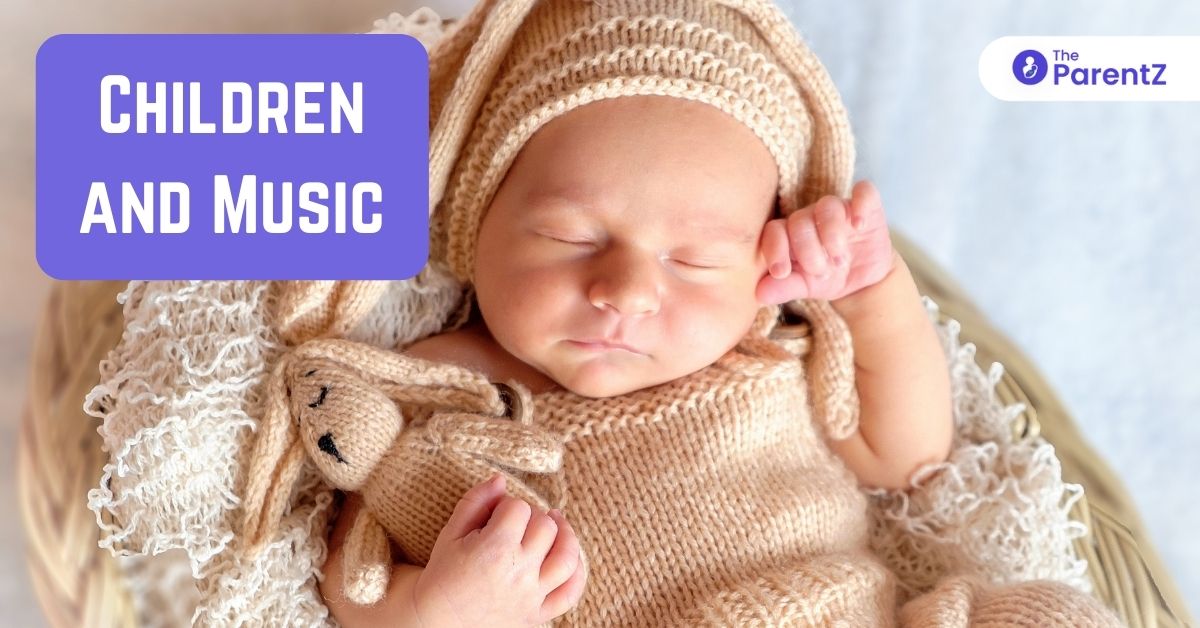‘’Music gives a soul to the universe, wings to the mind, flight to the imagination and life to everything ‘’ this quotation very well explains the importance of music in our lives. Music plays a vital role in the development of an individual’s personality. So how does music affect childhood development? In this article, we will get to know how music helps, especially in the early child’s development and his/her behavior.
Singing, dancing, and listening to various forms of music is an integral part of human’s life. Music can be relatable to every mood of a man and, in the same manner, can help a lot in a child’s grooming skills. From toddler to teen, everyone can experience music and enjoy it.
As soon as a child is born, they are exposed to music in the form of calming to soothing in expressing love, joy, affection in engaging and making them learn new things, singing lullaby’s. Music has a very distinguished and important role in developing a child’s brain. It benefits them by improving their motor skills and other social skills.
Research done at the University of Southern California found that musical experience can accelerate childhood brain, particularly in language acquisition and reading skills. Also, music instruction increases the portion of the brain responsible for sound, speech, perception, and reading skills. The neurologists have also found that music improves the cognitive, social, and emotional development of a child. It’s found that children with exposure to music have a faster development of the brain because the encoding of the processing sound accelerates their auditory pathway, and the result sent to the brain is faster than the non-musical children. Read to know
- Impact of music on infants
- Musical effects on toddlers
- Music in school age children
- Bond of music with teens
Impact of Music on Infants – How Music Helps Baby Develop
In infants, music and melodies create more impact before they learn to speak. Background music and lullaby are very soothing and calming for babies, especially during night time. The mothers who sing and make their babies do things with 2-3 tunes on bathing, brushing, eating etc. are more fun and children find it very amusing, and it gives a sense of comfort and security to them that their mothers are always around them and they are more mentally sound.
Musical effects on toddlers – Why Music Is Important For Toddlers
In the toddler age, they love to dance and move on nursery rhymes. Dancing to music helps children’s to build motor skills, and they allow to express themselves. It helps them to speak more clearly and develop a vocabulary according to their age and strengthen social and emotional skills. In this age, music helps a lot to build the connection between body and brain. Toddlers develop their musical skills through imitating and memorizing various rhythms and tones of songs such as clapping to a beat and singing in tune. The basic behavior of sharing and caring, also they can learn from the rhymes and poems.
Music in school-age children
Music in school-age children has given an immense result in their behavioral well being. Music can benefit the child by increasing his/her concentration. Children who are inclined towards music are proved to be very intellectual and they are better in mathematics and science because music builds their reasoning skills and cognitive development and this helps to increase their self esteem. School-age children can learn coordination, goal setting and co-operation through music.
Bond of music with teens
Teens and music have a very special bond. Teenagers express a lot of emotions through music in the form of love, friendship, sadness etc. In this age they show more interest towards learning and taking lessons to play any instruments ultimately that helps in their intelligence. Music innovates this tender age to explore new ideas and emotions and gives an innovative way to express themselves. Exposure to music gives them a positive influence and helps them to cope and react seriously in stressful and difficult situations. Their vocabulary and verbal knowledge can be increased and they can be more intellectual. Music can help them in motivating the adolescent brain and can give a sense of security and belonging. By listening good music their mood can be uplifted and happy and that is important for their behavior.
In the end, the article focuses on the pivotal role of music and a child’s behavioral development through all the phases of life i.e. from infant to teen. The importance of music starts right from childhood till adulthood and how it gives the opportunity to develop a good and sound behavior throughout one’s life. Music has immense power of expression and development. This art brings out the most emotional cognitive, social, and human potential.
‘’Music stimulates challenges and enriches one young people during their formative school years, its value lasts a lifetime.’’





Be the first one to comment on this story.